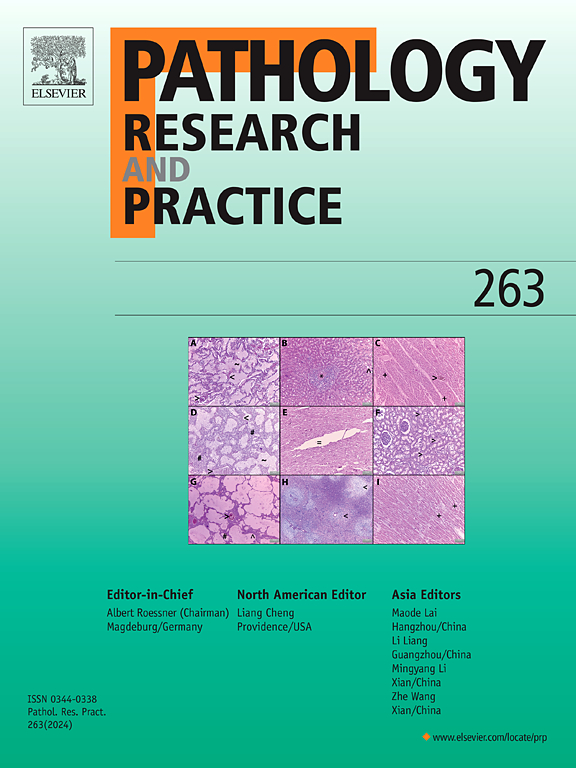The microbiota–gut–brain axis theory: A new perspective to unlock the pathological mechanism of constipation
IF 3.2
4区 医学
Q2 PATHOLOGY
引用次数: 0
Abstract
Constipation, a common gastrointestinal system disease, has a variety of side effects, but its pathogenesis is diverse and complex. Thus, its treatment is affected by a variety of factors, such as intestinal flora imbalance, nervous system problems (cerebrovascular disease, cognitive impairment or dementia, Parkinson’s disease) and other pathological diseases (hypothyroidism, hypercalcemia and others). With the rise of the microbiota-gut-brain (MGB) axis theory, people's understanding and treatment methods for gastrointestinal diseases such as constipation have also undergone significant changes. Therefore, this paper focuses on the MGB axis and constipation, including the 3 main regulatory pathways of this axis, the gut microbial metabolites and the regulation of neurotransmitters, and the methods and applications of treating constipation and other diseases on the basis of this axis. Further clarification of the pathways and influencing factors related to the MGB axis will help elucidate the pathophysiological mechanisms of constipation and play a key role in the rational treatment of human gastrointestinal diseases.
微生物-肠-脑轴理论:揭示便秘病理机制的新视角。
便秘是一种常见的胃肠系统疾病,其副作用多种多样,但其发病机制复杂多样。因此,其治疗受到多种因素的影响,如肠道菌群失调、神经系统问题(脑血管疾病、认知障碍或痴呆、帕金森病)和其他病理疾病(甲状腺功能减退、高钙血症等)。随着微生物-肠-脑(microbiota-gut-brain, MGB)轴理论的兴起,人们对便秘等胃肠道疾病的认识和治疗方法也发生了重大变化。因此,本文重点研究MGB轴与便秘的关系,包括MGB轴的3条主要调节通路、肠道微生物代谢物和神经递质的调节,以及基于MGB轴治疗便秘等疾病的方法和应用。进一步阐明MGB轴相关通路及影响因素,有助于阐明便秘的病理生理机制,对人类胃肠疾病的合理治疗具有关键作用。
本文章由计算机程序翻译,如有差异,请以英文原文为准。
求助全文
约1分钟内获得全文
求助全文
来源期刊
CiteScore
5.00
自引率
3.60%
发文量
405
审稿时长
24 days
期刊介绍:
Pathology, Research and Practice provides accessible coverage of the most recent developments across the entire field of pathology: Reviews focus on recent progress in pathology, while Comments look at interesting current problems and at hypotheses for future developments in pathology. Original Papers present novel findings on all aspects of general, anatomic and molecular pathology. Rapid Communications inform readers on preliminary findings that may be relevant for further studies and need to be communicated quickly. Teaching Cases look at new aspects or special diagnostic problems of diseases and at case reports relevant for the pathologist''s practice.

 求助内容:
求助内容: 应助结果提醒方式:
应助结果提醒方式:


